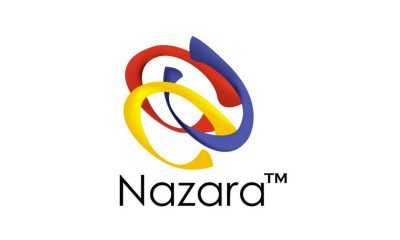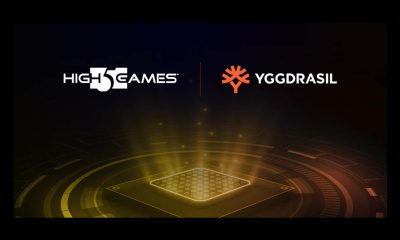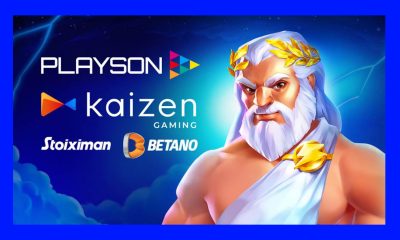Latest News
Top 5 Open Source AI Solutions for Image Processing
 Reading Time: 4 minutes
Reading Time: 4 minutes
A few decades or even years ago, self-driving cars and computers with a human-like vision were just a figment of the fantasy writer’s imagination. But today, Artificial intelligence (AI) technologies allow cars to drive safely across busy streets and computers to interpret pictures almost like humans do.
Developers have made impressive progress on how to implement AI on image processing tasks. Furthermore, image processing solutions with AI are widely used in various fields, from medicine to law enforcement to cybersecurity and retail.
AI and machine learning make it possible for the machines to inherit new functionalities through the process of learning. Similarly to small kids, machines can gain the ability to acquire and understand visual information by processing massive amounts of images. To process so much data faster without compromising the final result, developers use image processing models based on machine learning and deep learning algorithms.
In particular, image processing and computer vision solutions use deep learning for accomplishing such complex tasks as:
- Image classification
- Object recognition
- Object tracking
- Image generation
- Image retrieval
To implement some computer vision functionalities into your product, you’ll need a large set of tools and resources: image datasets, libraries with code samples, frameworks for creating and training deep learning models. Fortunately, there are a lot of open-course services that you can use to make machine learning less of a mystery and ease the development of your own AI-based image processing solution.
Below, we take a closer look at the five best open source image processing solutions that you can apply to your projects:
- OpenCV
- TensorFlow
- Keras
- Caffe
- Google Colab
Let’s get started!
OpenCV
Open Source Computer Vision Library (OpenCV) is one of the most popular open source services for image processing. It’s a free computer vision library that you can use to perform various image processing tasks:
- Image acquisition
- Image compression and decompression
- Image enhancement and restoration
- Image denoising
- Image segmentation
- Data extraction, and more
The library includes numerous algorithms and functions as well as special modules aimed at image processing tasks. Starting from the library version 3.1, there’s also a deep learning module for building and training deep learning models.
With this module, you can use OpenCV to extract features from processed images, and then apply a machine learning model using one of the supported machine learning frameworks.
As of today, OpenCV supports a number of popular frameworks, including TensorFlow, PyTorch, and Caffe. The list of supported types of neural networks includes convolutional, deconvolutional, and recurrent neural networks.
The library is written in C++ and supports C++, Java, Python, and MATLAB interfaces.
TensorFlow
TensorFlow is an open-source machine learning framework created by Google. Initially, the project was started for research purposes of the Google Brain team. Today, however, TensorFlow is widely used by both small startups and large companies such as Dropbox, Intel, and Twitter.
You can use TensorFlow to process different types of data, but in relation to image processing, this framework works best for:
- Image classification
- Image recognition
- Image segmentation
- Image to image translation (pix2pix)
TensorFlow includes a set of libraries for creating and training custom deep learning models and neural networks. The framework supports Jupyter notebooks and provides a style guide with recommendations on writing readable, consistent code.
TensorFlow supports several popular programming languages, including C++, Python, Java, Rust, and Go. However, you can install third-party bindings for other languages, such as Ruby, Scala, or PHP.
Keras
Keras is an open-source Python library for creating deep learning models. It’s a great solution for those who only begin to use machine learning algorithms in their projects as it simplifies the creation of a deep learning model from scratch. Keras is easy to manage and it is suitable for fast and simple prototyping of different types of neural networks.
The library was built on TensorFlow and is currently fully integrated into the framework. This means that you can write your deep learning model in Keras, as it has a much more user-friendly interface, and then easily implement a specific functionality or feature from TensorFlow in this model.
Keras can also be deployed on top of other popular AI frameworks such as Microsoft Cognitive Toolkit and Theano.
Caffe
Convolutional Architecture for Fast Feature Embedding (Caffe) is an open-source framework that can also be used for creating and training popular types of deep learning architectures. You can use Caffe to accomplish such tasks as image classification, segmentation, and recognition.
Caffe is written in C++ but it also has a Python interface. The framework supports both CPU- and GPU-based accelerated libraries such as NVIDIA cuDNN and Intel MKL. The framework also has a special database, Caffe Model Zoo, containing a set of pre-trained deep learning models. As of today, it offers four BAIR-trained models:
- BAIR Reference CaffeNet
- BAIR Reference R-CNN ILSVRC-2013
- BAIR AlexNet
- BAIR GoogLeNet
Model Zoo also includes a number of community models trained by other Caffe users. As for the types of supported neural networks, Caffe works best with convolutional neural networks (CNN) and feedforward networks. At the same time, it’s not the best choice for training recurrent neural networks.
In 2017, Facebook launched Caffe2, an open-source framework for training and deploying deep learning models. And in 2018, Caffe2 was integrated with another popular AI framework, PyTorch.
Caffe2 comes with C++ and Python APIs and supports all popular platforms.
Google Colaboratory (Colab)
Google Colaboratory, or simply Colab, is one of the top image processing services. While it’s rather a cloud service than a framework, you can still use Colab for building custom deep learning applications from scratch. With the help of Colab, you can perform such image processing tasks as image classification, segmentation, and object detection.
Google Colab eases the use of other popular AI-based tools such as OpenCV, TensorFlow, and Keras. The service uses Jupyter Notebooks, helping developers to share their knowledge, tips, and best practices on building AI-based applications. Plus, in contrast to other similar services, Colab offers free usage of both CPU- and GPU-based acceleration.
Conclusion
Machine learning models and algorithms help developers implement specific image processing functionalities into their products both quickly and easily. However, building a custom machine learning model or neural network requires lots of resources and a high level of technology expertise. With the help of the listed open-source tools, libraries, and frameworks, you can simplify the process of leveraging Artificial Intelligence technologies to your benefit.
This article is a contribution from Marcell Gogan. Marcell is a specialist within digital security solutions, business design and development, virtualization and cloud computing, R&D projects, establishment and management of software research direction – working with Ekran System. He also loves writing about data management and cybersecurity.
Source: Latest News on European Gaming Media Network
This is a Syndicated News piece. Photo credits or photo sources can be found on the source article: Top 5 Open Source AI Solutions for Image Processing

Latest News
PayRam Unveils Private Stablecoin Payment Gateway Built for iGaming
PayRamnt-weight: 400;”> has launched its private stablecoin payment gateway for iGaming operators, gaming platforms, and affiliates that require fast, borderless, and censorship-resistant payments.
Built on the belief that payments should operate as freely as the internet itself, PayRam delivers decentralized PayFi infrastructure that allows iGaming businesses to accept and manage stablecoin payments through fully self-hosted infrastructure. Operators no longer rely on banks, custodians, or centralized processors to control their revenue.
In an industry plagued by frozen balances, chargebacks, delayed settlements, and compliance shutdowns, PayRam gives operators direct control over funds, payouts, and transaction infrastructure. Platforms retain ownership of their payment flow without platform risk. Operators can now accept private stablecoin deposits, launch without intermediaries, and expand globally on their own terms.
Stablecoins Are the Future of Global iGaming Payments
Stablecoins now drive the most significant transformation in payments in decades. With a market capitalization exceeding $300 billion, stablecoins now function as real-world settlement infrastructure rather than speculative assets. For iGaming businesses that operate across borders, stablecoins deliver instant payouts, low transaction costs, and continuous global liquidity.
Governments also continue to formalize regulatory frameworks. Initiatives such as the GENIUS Bill in the United States signal that stablecoins will soon function as foundational financial infrastructure for both traditional commerce and emerging agent-driven economies.
Yet most existing stablecoin fiat gateways still copy legacy banking structures. They custodian funds, over-monitor transactions, delay settlements, and restrict high-risk industries such as iGaming. Operators continue to face frozen balances, withheld profits, and sudden account closures.
Instead of decentralizing commerce, centralized processors reintroduce single points of failure. They strip merchants of privacy, predictability, and true ownership of funds.
PayRam removes these bottlenecks by allowing iGaming operators to deploy and operate their own self-hosted stablecoin payment nodes. This sovereign infrastructure restores payment autonomy, protects funds from blacklisting, enables private deposits, and eliminates third-party revenue risk.
Permissionless Commerce Underpinned By Privacy
PayRam embodies a mission to decentralize the global payments ecosystem. Its founder, Siddharth Menon, who previously co-founded WazirX, India’s largest cryptocurrency exchange, helped bring crypto to more than 15 million users. Today, he’s channeling that experience into building a decentralized PayFi layer engineered for privacy, autonomy, and self-custody.
“The future of payments is decentralized stablecoin payments. As the world moves beyond custodial systems, PayRam is building the foundation for permissionless commerce, where every merchant, creator, or platform can host and own their own payment infrastructure,” said Siddharth Menon, Founder of PayRam. “Just as Uniswap reimagined trading through decentralization, PayRam is reimagining how money moves across the internet.”
iGaming Operators Go Live in Minutes and Expand Into Underserved Regions
PayRam removes all onboarding friction. Operators need no approvals, no vetting, and no centralized onboarding process. Any business can deploy PayRam, configure it, and begin processing private stablecoin payments within 10 minutes.
This instant deployment allows operators to enter underserved and payment-restricted regions, unlock new player bases, and launch real-money gaming operations without waiting on banks, payment processors, or jurisdictional approvals.
PayRam is built as a merchant-first ecosystem, offering advanced accounting analytics, scalable APIs, and automated payments orchestration tools. It also arrives with integrated growth tools like referral and payout systems. Merchants and individuals can issue payment requests, share unique payment links, and monitor transactions through programmable APIs, all operated on infrastructure that users self-host and fully control. The built-in SmartSweep feature uses a family of smart contracts to move funds securely and periodically, eliminating the need to store private keys on servers.
PayRam supports stablecoin and cryptocurrency payments across major networks including Bitcoin, Ethereum, Base, and Tron, with integrations for Polygon, BNB Smart Chain, Solana, Ripple, Monero, and TON next in line.
“We’ve used several crypto payment providers over the years, including BTCPay Server, NOWPayments, and others, but PayRam stands out as truly open and built for the modern internet economy. It gives us full control over our payments and funds, along with stablecoin support, privacy, multi-chain flexibility, and faster global settlements,” said an iGaming operator using PayRam.
PayRam Prepares to Support Agentic Betting With Privacy and Automation
Agentic betting represents the next evolution of iGaming, where autonomous software agents will place bets, execute strategies, manage bankrolls, and settle wagers in real time without human intervention. These systems already power algorithmic trading in financial markets, and iGaming infrastructure now begins to move in the same direction.
Most existing betting and payment infrastructure cannot support this shift. Centralized processors expose transaction logic, restrict automated flows, and introduce settlement delays that break agent-driven wagering models at scale.
PayRam is actively adopting the foundational standards and infrastructure required to support agentic betting in the future. The platform is positioning itself as a privacy-first, decentralized payment layer that will allow autonomous betting systems to operate with:
- Private stablecoin deposits
- Real-time settlement logic
- Automated treasury and bankroll flows
- Programmable payout execution
- Full self-custody and non-custodial risk isolation
By preparing to adopt open standards such as x402 and ERC-8004, PayRam aims to support interoperable and intelligent payment flows between autonomous betting systems, sportsbooks, and gaming platforms when the agentic wagering ecosystem reaches production maturity.
Through this approach, PayRam is building the foundation for a future where payments are private, programmable, and permissionless.
About PayRam
PayRam is the world’s first self-hosted private stablecoin processor, giving merchants and individuals complete control over their payments stack. Built for the next era of permissionless commerce, it merges stablecoin payments with self-hosted infrastructure to enable borderless, censorship-resistant transactions.
Latest News
Week 49/2025 slot games releases
Reading Time: 5 minutes
Here are this weeks latest slots releases compiled by European Gaming
BGaming gets in the festive spirit with a Christmas take on its acclaimed casual hit, Aviamasters, with Aviamasters X-Mas. Santa and his sleigh replace the plane from the original title, with players watching as he flies through the air, collecting festive multipliers before hopefully landing on an ice floe to collect his prizes.
Stakelogic is spreading festive cheer this December with the release of Big Sugar Bonanza Xmas, a delicious sequel of the candy-coated hit, Big Sugar Bonanza. Launching on 1st December 2025, the new game transforms the Fluffkins’ sugary kingdom into a winter wonderland of treats and turbo-charged multipliers.
Million Games is bringing festive mayhem to the iGaming world with the launch of Rudolph’s Gone Rogue, a fast-paced Christmas slot where Santa’s most famous reindeer takes centre stage in a runaway holiday adventure. In this 5×3, 20-payline slot, Rudolph bolts into the night sky, dragging the rest of the herd with him and leaving a trail of chaos in his wake.
Spinomenal has unwrapped its new title Majestic Santa, signalling the start of the festive season. Spinomenal’s festive-inspired treat is a 5×3 slot that is bursting with Christmas imagery including red stockings, gingerbread men, and glistening golden bells.
Evoplay has launched Mega Greatest Catch: Blue Marlin, bringing the fearless fisherman Harry back to sea for his most exciting adventure yet. The latest instalment transports players to bright turquoise waters, where random scatters can trigger free spins, wilds appear unexpectedly, and the scatter respin feature offers a welcome second chance to enter the round.
Looking to unwrap longer sessions, stronger engagement and bigger revenues this Christmas? ICONIC21, in-demand iGaming content provider, just launched Sweet Royale Xmas ahead of the holiday season. Sweet Royale is one of the provider’s most popular slots to date and now returns in a Christmas edition decked with boughs of candy to allow operators to leverage the rise in slotting activity during the festive period.
Meet Nolimit City’s latest Crazy Ex-Girlfriend…the kind ex who would “accidentally” like your 2014 selfie at 3am and has a little voodoo doll named after you. Crazy Ex-Girlfriend has mapped out your every move and runs through a 2-4-4-4-4-2 layout across 6 reels.
It’s the most magical time of the year, but don’t expect a peaceful Christmas with the release of Realistic Games’ latest blockbuster slot, Wreckmas. The new 5×3, feature-packed slot brings toppled trees, tangled tinsel and chaotic carols to a family Christmas, along with the chance to hit a 5,000x max win.
Players can jingle their way to jackpot joy in Christmas MegapotsTM from Big Time Gaming. This festive slot brings Big Time Gaming’s legendary Megapots mechanic to life with seasonal sparkle, giving players the chance to unwrap Mini, Midi or Mega Jackpots with each spin.
Players are being commanded to raise the sails and brace themselves for a high seas adventure like no other in Captain WinBreaker, the latest swashbuckling slot from Northern Lights Gaming. This pirate-themed slot sees players take the helm of a ship bound for treasures and untold riches.
Amusnet has released 20 Burning Hot Buy Bonus, a sizzling twist on the classic fruit slot. Set across 5 reels and 3 lines, this game combines familiar symbols with modern mechanics for fast-paced spins, vibrant visuals and nonstop excitement.
SlotMatrix is embracing the holiday season with Santa’s Golden Christmas, a sparkling new slot packed with festive cheer, golden prizes, and heart-warming holiday magic. Set in a winter wonderland, the game brings players closer to the jolly gift-giver.
Inspired Entertainment, Inc. is thrilled to announce the exclusive launch of its brand-new, bespoke slot game, Spin O’Reely Grand Chance, in collaboration with long time partners bet365. Expanding bet365’s popular exclusive Irish-themed Spin O’Reely game series, the game will initially be available to players in the UK, Ontario, and New Jersey, with more markets to follow soon.
Play’n GO pits sun god Ra against serpent deity Apophis in Ra’s Reckoning, a mythic grid slot inspired by the celestial battles of ancient Egypt. Ra’s Reckoning brings players face to face with an age-old mythic struggle – the eternal duel between light and chaos.
Playson has unleashed a whirlwind of excitement with Tornado Power: Hold and Win, introducing a new Tornado Feature and enhanced payouts. The 3×4, 10 payline slot features immersive visuals with old-school charm, as the untamed gameplay is further enhanced by a new Tornado Feature
ELA Games announces the release of its latest title, Joker Jam, a bold visual addition to the studio’s growing portfolio of strategic yet aesthetic games. Set under the neon glow of a vibrant city, Joker Jam reimagines the classic Vegas aesthetic into a thrilling experience.
Just Slots has announced the exclusive launch of its newest title, Dynamo’s Show, available on Gamdom and Stake. A full network release will follow on 11 December 2025. This vibrant new slot transforms the classic Hold & Collect experience into a full theatrical performance
Spinomenal is celebrating the holiday season by inviting players for a festive journey with The North Star Express – Hold & Hit 3×3. Unfolding against a wintry backdrop, North Star Express arrives to present a fun, festive adventure as players race through snowy forests.
Belatra Games, the specialist online slots developer, has rolled out the red carpet to the Frozen Barrel Tavern to celebrate the festive season. Players are warmly welcomed into a cosy winter tavern that radiates holiday cheer and buzzes with Christmas chatter.
The post Week 49/2025 slot games releases appeared first on European Gaming Industry News.
Latest News
DATA.BET Boosts Casino Performance
Reading Time: 2 minutes
Company reveals a substantial rise in player value after casinos add sports betting
DATA.BET, a leading sportsbook solution supplier, reports notable performance improvements among casino operators that introduced sports betting through the company’s plug-and-play integration.
According to internal statistics across multiple clients, adding a betting vertical resulted in players who use both casino and sports betting, generating up to a 4x increase in player lifetime value (LTV) compared to their previous casino-only behavior, while the same betting-active segment delivered an average 12% additional revenue without additional player acquisition. Operators also recorded higher retention and engagement levels, with every second casino player placing at least one sports bet after the sportsbook launch.
The clients have noticed these results after integrating a Single Page Application (iFrame), which takes around one week. While DATA.BET manages all betting-related operations and configurations — both at launch and ongoing — casino operators instantly gain access to a full suite of sports, esports, and virtual sports events, allowing them to focus on marketing and player acquisition. To enhance flexibility and engagement, the iFrame supports full customization: from color themes and layouts to dynamic banners, promo blocks, configurable bonuses, and margin/odds control.
The company designed the SEO-friendly solution to ensure that search engine crawlers can easily read and index the content, thereby improving discoverability, page load times, and the overall quality of metadata, which contributes to higher SEO rankings and better visibility in organic search results.
Yurii Berest, CEO of DATA.BET, commented: “For many casinos, betting is more than diversification – it helps operators to maximize the potential of their existing audience and improve the efficiency of traffic monetization. As the average stake in sports is traditionally higher than in slots, operators experience instant revenue growth while retaining and extending player lifetime value. It is a powerful model of sustainable growth that helps to boost not only the current player base but also attract new audience”.
As the market continues shifting toward universal gambling ecosystems, DATA.BET’s solution demonstrates that sports betting drives measurable financial impact for casino operators, turning existing audiences into long-term revenue drivers.
The post DATA.BET Boosts Casino Performance appeared first on European Gaming Industry News.
-
Latest News2 months ago
Announcement: 25th September 2025
-
Latest News3 months ago
GR8 Tech’s Bet It Drives Wraps Season 1 with Stephen Crystal—From Las Vegas Legends to Global Gaming Leadership
-
Latest News3 months ago
AI-Powered Gamification Arrives on Vegangster Platform via Smartico
-
Latest News4 weeks ago
JioBLAST Launches All Stars vs India powered by Campa Energy: A New Era of Creator-Driven Esports Entertainment
-
Latest News2 months ago
The Countdown is On: Less Than 3 Months to Go Until The Games of The Future 2025 Kicks Off in Abu Dhabi
-
eSports3 weeks ago
CS:GO Betting Gains Momentum in the iGaming Sector
-
Latest News3 months ago
Adidas Arena Set to Welcome the 2026 Six Invitational
-
Latest News3 months ago
LiveScore Group announces transformational partnership with X and xAI to drive the future of integrated sports media and betting















You must be logged in to post a comment Login